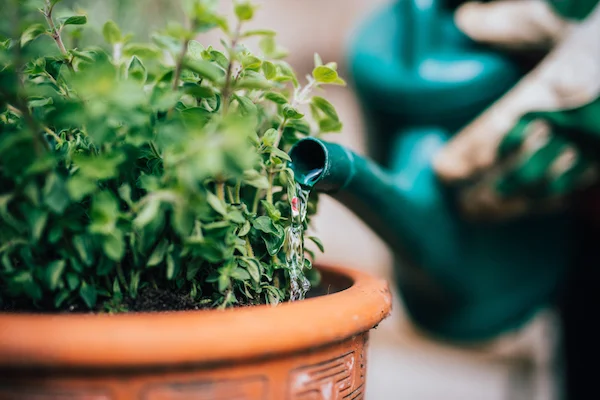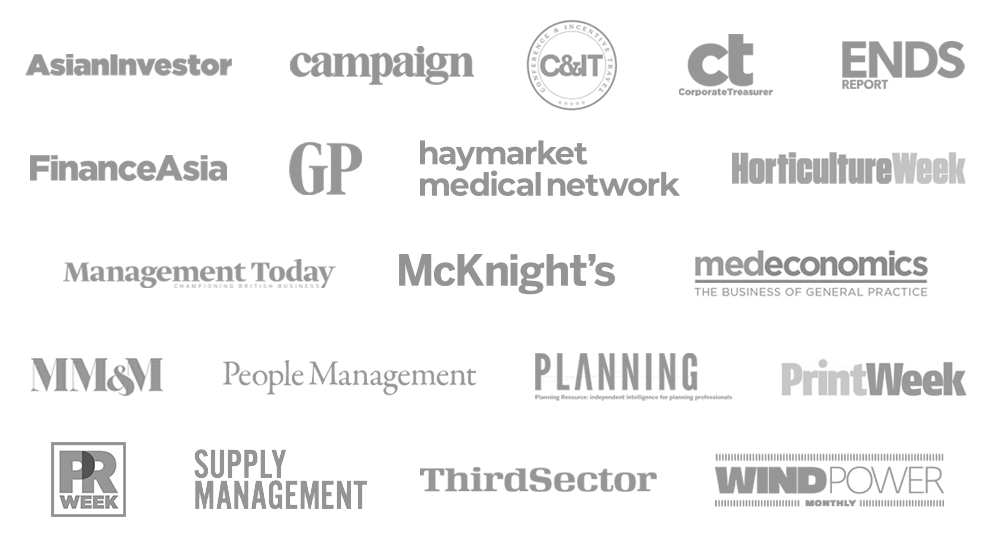In Depth
[Product Roadmap] From breast cancer to river blindness, Niramai is
using tech to simplify detection
A product roadmap clarifies the why, what, and how behind what a tech
startup is building. This week, we take a closer look at healthtech
startup Niramai, which shot into the spotlight by using AI to detect
early-stage cancers with non-invasive, radiation-free methods.
By Sindhu Kashyaap & Sampath Putrevu
6th May 2020
8 claps
+0
[Bookmark this story]
Geetha Manjunath was working in AI R&D for multinational companies
such as Xerox when she got the news that a close cousin had breast
cancer. A few months later, her husband’s cousin also received the same
diagnosis. Both women were under 45 years of age, and this came as a
shock to Geetha.
Working with technology and AI for several companies operating in space
of healthcare, transport, and more, Geetha felt the need to startup in
the healthcare space.
In 2016, she joined hands with Nidhi Mathur to launch healthtech
startup Niramai, which uses AI to detect cancer in the early stages with
non-invasive, radiation-free, and painless methods.
The startup’s patented product Thermalytix is a portable, non-invasive,
radiation-free, and non-contact solution for early-stage detection of
breast cancer. It works by measuring the temperature of the chest
region, and generating a report. . It has over 30 installations at
hospitals and diagnostic centres across 10 Indian cities.
In February last year, Niramai raised $6 million funding led by Japanese
VC firm Dream Incubator, Beenext, and other investors.
Product Roadmap: Niramai
Founders of Niramai - Nidhi Mathur and Geetha Manjunath
Also Read
[Product Roadmap] How Ratan Tata-backed Moglix is tapping tech to become
Alibaba 2.0
Working amid the coronavirus crisis
The team has been working on the idea since June 2014 and collaborating
with hospitals since then to collect data and develop the initial AI
model. The founders started full product development and AI fine-tuning
in January 2017, and got the first reference commercial installation for
the end-to-end solution by September that year.
The healthtech startup is innovating to do its bit amid the current
pandemic. “We have modified Thermalytix to develop a solution for
Automated Fever Test and detecting respiratory ailments for screening
and detecting possible COVID-19 patients,” Geetha says.
The solution aims to enable automated screening of the population by
detecting likely COVID-19 infected people. It does this by checking for
fever and associated respiratory diseases using Thermalytix, which uses
AL algorithms over thermal images.
The screening can be done by a health worker, reducing the pressure on
clinical testing. The Fever Test solution can be deployed at the
entrance of any facility, including apartments, offices, malls,
hospitals, and more.
The solution was pilot-tested at a biotechnology company in March 2020.
Starting with thermography and AI
When Niramai started out, Geetha had thought of methods other than
mammography. A few researchers in the US had mentioned thermography, but
the founders realised that healthcare institutions did not use
thermography due to the prevailing accuracy issues.
But they felt the accuracy problems could be easily tackled using
AI.
On why they chose the thermography model, Geetha explains that there are
limited methods of detecting breast cancer. The most common is
mammography, which tries to find malignant lumps in the breast using
density differences. Geetha says it uses X-rays, and the lumps are seen
as white.
Geetha says one cannot go for a mammography more than once every two
years as it can cause radiation problems. Also, women under the age of
40 have denser breasts; this means the entire breast appears white in a
mammography for a woman under 40.
This eliminates over 50 percent women from getting a regular breast
cancer test. Also, a mammography can be extremely painful and
uncomfortable.
Also Read
[Product Roadmap] How Drivezy is navigating the road ahead amid
coronavirus crisis
Working on a non-invasive method
The Niramai team developed a novel technology to identify early-stage
breast abnormalities in a privacy-aware, radiation-free way that is
effective for women of all age groups.
The patented Thermalytix uses a high-resolution thermal sensing
device and a cloud-hosted analytics solution for interpreting thermal
images using ML and AI.
“Our technology works well on women of all age groups. We provide
preventative breast health screening solutions in hospitals and
diagnostic centres. Since our solution is portable, age-agnostic, and
has zero radiation, we can also do the test outside hospital premises
and help women in rural areas as well. These benefits very effectively
address the concerns and limitations for greater adoption of screening
for women across all segments. Early detection saves lives,” Geetha
says.
Sign up for Newsletters
Check out our popular newsletters and subscribe
Dropdown
The solution automatically generates detailed quantitative reports with
clinical parameters and estimates the likelihood of cancer. These scores
help doctors make quick and more accurate decisions.
Building the first solution
“Our first technical solution was to identify the location of the tumour
in a cancer patient. Then, we thought since the solution has no side
effects and can detect very small lesions, why not use it for screening
all women as a preventive measure. The initial research experiments were
done in my previous organisation as a side project,” Geetha recalls.
Before building a complete solution, the team needed to do clinical
testing on real patients and showcase results that highlighted the
benefit of the solution over existing methods. Once the AI model was in
place, they needed to conceptualise and develop the complete product
offering.
“Then we had to find the right partner as a reference customer to
launch the product while ensuring that end patient benefits were not
compromised. With the mentorship of expert radiologists Dr Sudhakar and
Dr Ramprakash, we fine-tuned the automated reports so that generated
scores were useful to radiologists,” Geetha says.
In January 2018, the team received its first request from an NGO to buy
the solution. Niramai also partnered with Karnataka Cancer Society to
evolve the usage for population screening.
Geetha says the team started generating screening camp-level reports,
and improvised the solution to generate triaging reports automatically
in real time.
Niramai now has two different products. The first is for population
screening, and gives red/yellow/green signals. This helps a camp
organiser decide whether the woman needs to be sent to hospital for a
detailed check. The second, for diagnostic centres, offers detailed
reports that help radiologists take informed decisions.
The first product required the team to review every image for quality.
An expert radiologist’s review was used for each and every report for
almost a year to ensure this.
Meanwhile, the team also began working on increasing the accuracy of the
model for automated reporting.
Also Read
[Product Roadmap] From affordable diagnostics to coronavirus tests, how
Qure.ai is tapping deep tech
Making it easier for healthcare workers
The Niramai founders realised they needed more technological
advancements when they put the solution in the hands of health workers.
This was critical as they could make many mistakes while imaging, and it
was important to adhere to protocols.
“We developed novel image-quality check algorithms that now enable us to
give instructions to the technician on correct image capture and help
with real-time report generation, which we currently use for screening
camps,” Geetha says.
The team continues to do clinical trials on complicated cancer cases to
make the algorithms smarter so they can identify all types of cancer
while reducing false alarms.
“A major learning has been proving clinical efficacy. We also
realise how important it is to partner with experts and hospitals to
understand current clinical practices and find the right fit for our new
product into that care pathway to increase acceptance,” Geetha says.
The key challenge was convincing hospitals and doctors to try the new
solution. The fact that it had no side-effects helped.
Early on, the team also partnered with a radiologist to give a certified
report to the hospital so that concerns about medico-legal issues were
resolved. This meant getting clearance from DCGI for the test.
The team chose available off-the-shelf hardware instead of developing a
thermal sensor. This gave Niramai a good start as it did not have to
wait for CE or FDA clearance.
“When we saw low uptake in hospital walk-ins, we started an outreach
business model for screening camps in corporate offices and rural areas.
That gave a jump-start in screening numbers. Competing in contests and
accelerator programmes enabled us to get some visibility, public
attention, and allowed networking with key hospitals,” says Geetha.
Creating awareness amongst people about preventative tests to ensure
wellness, particularly encouraging women to take a cancer test, was also
a challenge.
“Mammography is a known standard for breast screening. Many women
did not know the limitations of the test and hence that required us to
break the legacy to at least get some women to come forward for the new
test,” Geetha says.
The team now aims to use its patented technology to help detect other
diseases.
In April 2019, Niramai announced that it would leverage Thermalytix to
detect the presence of parasitic worm Onchocerca volvulus, which causes
Onchocerciasis (river blindness) and significant disability. The disease
is common in remote African villages, and has affected nearly 17
million people.
Niramai’s non-invasive method is expected to help assess the efficacy of
new drugs being developed to control river blindness by killing the
adult worms, and accelerate elimination of the disease. The project has
raised funding from the Bill & Melinda Gates Foundation.
(Edited by Teja Lele Desai)
How has the coronavirus outbreak disrupted your life? And how are you
dealing with it? Write to us or send us a video with subject line
'Coronavirus Disruption' to editorial@yourstory.com
Read more at:
https://yourstory.com/2020/05/product-roadmap-healthtech-startup-niramai-breast-cancer-river-blindness?utm_pageloadtype=scroll








&cid=&e=5461259551b4a893fe0c287100d45c8f27d93dc212ee50c4fcc479f4fac225ef&c=proclivity_91785&pubid=202&siteid=20243&p=1)
&cid=&e=5461259551b4a893fe0c287100d45c8f27d93dc212ee50c4fcc479f4fac225ef&c=proclivity_91785&pubid=202&siteid=20243&p=2)



&cid=&e=5461259551b4a893fe0c287100d45c8f27d93dc212ee50c4fcc479f4fac225ef&c=proclivity_91653&pubid=202&siteid=20243&p=1)

&cid=&e=5461259551b4a893fe0c287100d45c8f27d93dc212ee50c4fcc479f4fac225ef&c=proclivity_91653&pubid=202&siteid=20243&p=2)



